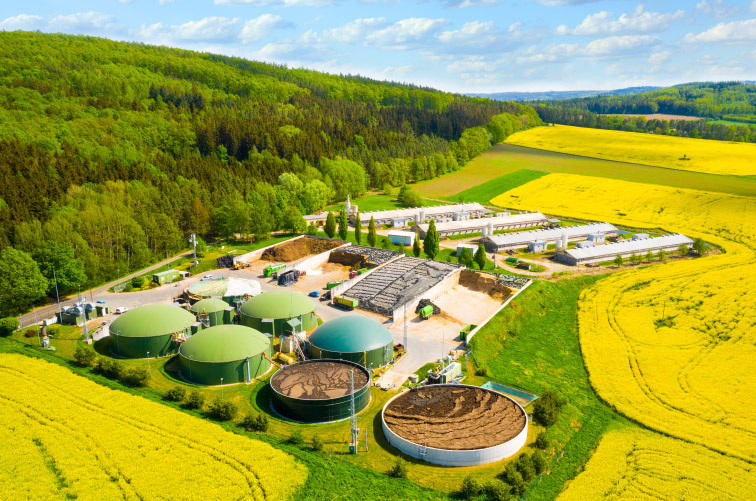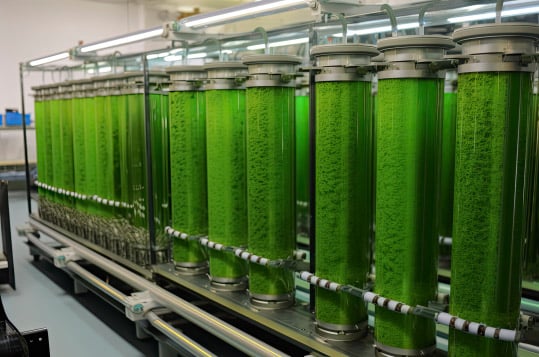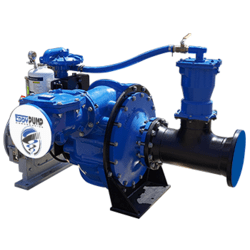Application of EDDY Pump in Biomass Oil Production



Application of Our Slurry Pumps in Biomass Oil Production

- Feedstock Preparation: Biomass feedstocks, such as agricultural residues and woody materials, often need to be processed and prepared for further conversion into oil. Slurry transport pumps transport and process these raw materials through grinding, chipping, and shredding operations, ensuring a consistent and manageable feedstock for downstream processes.
- Biomass Slurry Transport: Some applications require the biomass to be converted into a slurry during the biomass-to-oil conversion process. Slurry transport pumps transport this biomass slurry from the preparation stage to the conversion reactors or other processing units.
- Biomass Oil Extraction: Heavy-duty slurry pumps circulate and transport solvents or chemicals within the extraction system in specific biomass oil extraction techniques. These pumps ensure proper mixing and effective contact between the solvent and biomass to maximize oil yield.
- Pyrolysis Oil Extraction: Slurry pumps are crucial in extracting pyrolysis oil, a key component of biomass oil production. During pyrolysis, biomass or waste plastics undergo thermal decomposition without oxygen, producing pyrolysis oil. The abrasive handling pump manages the viscous and abrasive pyrolysis oil and transfers it from the pyrolysis reactor to storage tanks or downstream processing units.
- Residue Handling: Solid residues that require handling and disposal might be left over after the oil extraction. Abrasive handling pumps transfer the residues to storage or waste management facilities.
- Biorefinery Processes: Biomass oil production is often part of a biorefinery process where various biomass fractions are converted into valuable products. Heavy-duty slurry pumps are essential for handling different streams and maintaining the smooth material flow between the other processing units.
- Cooling and Heat Exchange: Industrial slurry pumps are utilized to circulate cooling water or heat transfer fluids, helping to control temperatures during various stages of biomass oil production, including condensation, cooling, and heat exchange.
- Wastewater Treatment: Biomass oil production generates wastewater containing byproducts and residues. High solids pump transfer and treat these effluents, ensuring proper handling and adherence to environmental regulations.
- Cleaning and Maintenance: A high solids pump is valuable for cleaning and maintaining equipment and processing vessels, removing sediments, and ensuring efficient operation throughout the biomass oil production facility.
CALL FOR SALES OR SUPPORT
If you need help with Pump Selection, Sales or Engineering Support
Call 619-345-5446

Application of EDDY Pump’s Hydraulic Dredging in Biomass Oil Production

- Algae Harvesting: Submersible hydraulic dredge collects and harvests algae from water bodies, such as ponds, lakes, or algae cultivation facilities. Algae are rich in oils, and hydraulic dredging facilitates efficient biomass collection for further processing.
- Biomass Concentration: Submersible hydraulic dredge can help concentrate algae or other aquatic biomass by removing excess water and creating a more concentrated slurry suitable for downstream processing.
- Pond and Lagoon Dredging: Biomass oil production facilities often have ponds or lagoons where water is used for various processes, including washing biomass feedstock or wastewater treatment. Over time, these ponds and lagoons can accumulate sediments, debris, and biomass residues. Submersible hydraulic dredge removes these materials, ensuring proper water management, maximizing storage capacity, and preventing potential environmental issues.
- Waterway Maintenance: A hydraulic dredger maintains waterways such as rivers, canals, and channels for transporting biomass feedstock or products. Dredging helps clear sediment buildup, ensuring smooth navigation and preventing blockages that could disrupt the transportation of biomass or biomass oil.
- Harbor Dredging: Some biomass oil production facilities are located near harbors or ports for transportation convenience. Harbor dredging is necessary to maintain vessel water depth, remove sedimentation, and improve accessibility to and from the biomass oil production site.
- Cleaning of Dewatering Equipment: Biomass oil production involves dewatering processes to separate oil from water and solids. The dewatering equipment can get clogged with biomass residues and sediments. Submersible hydraulic dredge can clean and unclog this equipment, ensuring consistent and efficient oil-water separation.
- Disposal Site Dredging: Disposal sites where residues or byproducts from biomass oil production are stored can accumulate sediment over time. Hydraulic dredgers remove these sediments, manage the disposal site capacity, and promote environmental compliance.
- Cooling Water Intake Dredging: Biomass oil production facilities often use cooling water intake systems to regulate process temperatures. Over time, these intake systems can become clogged with sediment and debris. Hydraulic dredging helps clear the intakes, ensuring uninterrupted cooling water supply and maintaining equipment efficiency.
- Wetland Restoration: Some biomass oil production facilities may impact wetlands or natural water bodies. Hydraulic dredging can be utilized as part of wetland restoration efforts to improve water flow, remove invasive species, and restore ecological balance.




